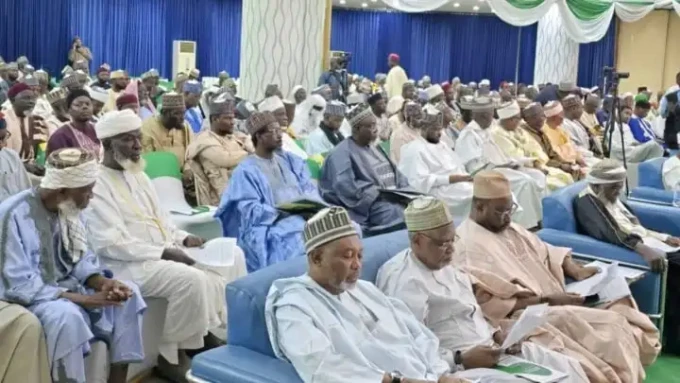The Economic and Financial Crimes Commission (EFCC), Kaduna Zonal Directorate, has confirmed the arrest of 11 suspected internet fraudsters in a hotel in Niger State, swiftly dispelling rumors of a shadowy abduction. According to a statement released on Sunday by EFCC Head of Media & Publicity Dele Oyewale, the operation took place on Thursday, February 27, 2025, at White Hotel in Chanchanga Local Government Area. The arrests, executed in broad daylight, followed credible intelligence linking the suspects to fraudulent internet activities—a stark contrast to earlier reports of a predawn raid by impostors.
Confusion erupted earlier on Sunday when security analyst Zagazola Makama reported an alleged abduction at White Hill Hotel on Shiroro Road, also in Chanchaga LGA. Citing intelligence sources, Makama claimed that armed men posing as EFCC operatives struck at 4:58 a.m. on Tuesday, February 27, disabling CCTV cameras and forcibly removing 10 guests to an unknown location. The Assistant Commissioner of Police, State Intelligence Department, reportedly launched an investigation into the incident, heightening public alarm. Yet, the EFCC’s account—detailing a lawful, daylight operation—casts doubt on the abduction narrative, suggesting either a mix-up or deliberate misinformation.
The EFCC’s version is precise: 11 suspects nabbed, two vehicles and 13 phones of various brands seized, and no whiff of covert chaos.
Oyewale underscored the professionalism of the sting, dismissing any abduction undertones. “The arrests were conducted following credible intelligence about their involvement in fraudulent internet activities,” he stated, promising that the suspects would face court once investigations conclude. The agency’s clarity aims to anchor a narrative muddied by conflicting timelines and locations—White Hotel versus White Hill Hotel, Thursday versus Tuesday.
The disparity between reports raises thorny questions. Did two separate incidents occur, one a legitimate arrest and the other a criminal ruse? Or has a single event been distorted by rumor and misreporting? Makama’s account of disabled cameras and a dawn raid evokes a cinematic heist, while the EFCC paints a routine enforcement action. The proximity of dates (both pegged to February 27) and locations (both in Chanchanga LGA) suggests overlap, yet the details diverge sharply. For now, the police probe into the alleged abduction runs parallel to the EFCC’s case, leaving Niger State residents caught between skepticism and unease.
Internet fraud, colloquially dubbed “Yahoo Yahoo,” remains a persistent scourge in Nigeria, and the EFCC’s Kaduna arm has been relentless in its crackdowns. The haul of phones and vehicles—tools of the trade for cybercriminals—bolsters the agency’s claim of a targeted hit. Yet, the specter of impostors masquerading as EFCC operatives isn’t far-fetched; such ploys have plagued Nigeria, eroding trust in legitimate operations. If Makama’s report holds any truth, it hints at a darker ploy exploiting the agency’s reputation—a chilling twist in an already murky tale.
For the EFCC, this is more than a bust—it’s a bid to reclaim narrative control. Oyewale’s statement doubles as a rebuttal, urging the public to see the arrests as a win against fraud, not a shadowy overreach. The promise of prosecution signals resolve, but the lingering abduction story risks overshadowing it. In Chanchanga, where hotel guests now eye strangers warily, the truth matters as much as the optics. Were 11 fraudsters nabbed, or were 10 innocents spirited away—or both?
Niger State, like much of Nigeria, grapples with security beyond cybercrime—banditry, kidnapping, and insurgency loom large. This incident, whether arrest or abduction, underscores the fragility of public safety. The EFCC’s insistence on professionalism is a lifeline for credibility, but the police investigation into the Tuesday report could yet shift the ground. Until then, the seized phones and cars sit as mute witnesses, while 11 suspects await their day in court.
For now, the EFCC stands firm: no terrorists, no curfew, just justice in daylight. But in a nation where shadows often outpace facts, the full story of February 27 remains tantalizingly out of reach.












Leave a comment